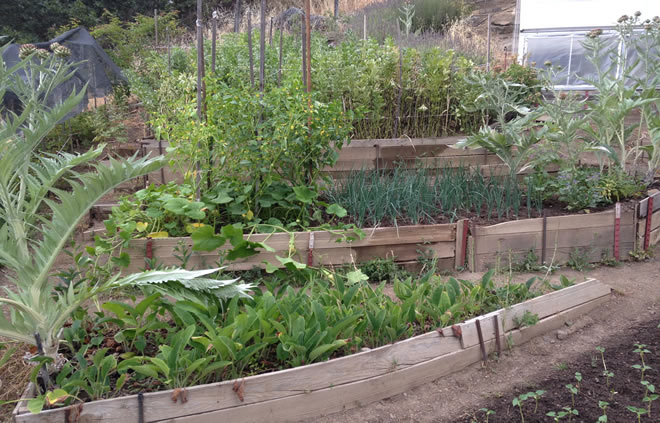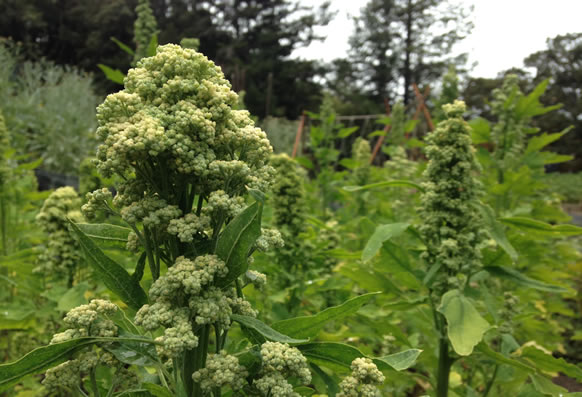Common Ground Mini-Farm Report: Who We Are
Recently I've had conversations with several people who asked this question: What are we—the staff, interns, and friends of Ecology Action—really doing? We at Ecology Action are preserving traditional, sustainable agriculture. We are maintaining a wonderfully simple, time-tested way of farming. We are “sticking to our guns” in the way we approach closed-loop sustainability. We are hesitant to compromise what has worked in the past, and choose instead to patiently and wisely adapt when necessary. We are viewing our mini-farms as organisms: each bed and plant and soil microbe vitally linked to, and dependent on, others. And we are enjoying the global perspective from which we view food and the environment. When I introduce myself at tours and workshops, I often share two things: first, that I very much enjoy working with my hands in the garden, and second, that I also enjoy sharing with others what I’ve learned and observed. In a way, those two things sum up my job* at the Jeavons Center. The second, the sharing part, has never been as expansive as it is today. In fact, in the main demonstration garden on Pine Mountain, there are currently 13 people working, learning, and living together as interns, apprentices, staff, and volunteers. (This does not include the interns and staff at other sites.) That’s a lot of people! Although the thought of being in charge of this multi-aged, multi-cultural group was slightly daunting at first, I’m seeing it now not as a challenge, but as an opportunity. * Additional job location is included at the bottom, so I left it out here. We have an opportunity for our own perspective to grow by sharing ideas with a group of people who truly represent the whole planet. We have an opportunity to build on each other’s strengths as we learn to understand sustainability in a deep, yet simple and practical way. We have an opportunity to experience food-raising that works globally, no matter the geographic or climatic situation, and we have the opportunity to explore how we can continually hone an established farming method so it will provide freedom through sustainable food-growing skills to those who are exposed to it. I’m writing this on the 4th of July, gratefully reflecting on our many freedoms—but also, somberly, remaining aware that so many people are imprisoned by a broken global food system. Many people rely on farms that have a singular focus on profit while disregarding the long-term effects their methods have on the land and its ability to continue producing nutritious food. I imagine that deep down, anyone’s intuition would lead them away from chemical-dependent farming focused on only one crop, and toward an environmentally resilient, bio-diverse, highly productive, “a-farm-is-an-organism” approach. It’s becoming very clear that in order to feed people in the future, it’s not “big ag”, but small-scale, organic agriculture, that is required. This is made very clear in the article in this issue entitled: “UN Report Says Small Farms Needed.” I’m not an expert on how the global food system works. Nor am I a vocal activist against it. But in response to the many negative news items I hear describing the injustices that seem to be a part of the current food system, I think there are some simple, positive actions that we can take: learn how the global food system operates, support local farmers who are taking good care of their soil, and grow a garden, while growing healthy soil at the same time!
.
top | Newsletter Home | Article Index | Archive
|




